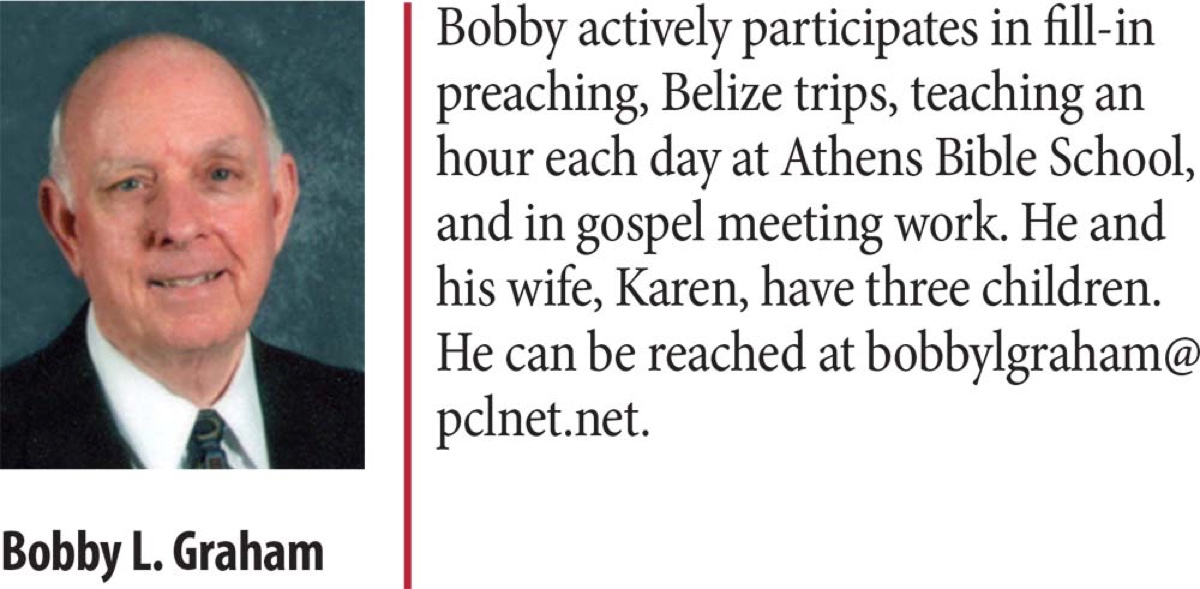

by Bobby L. Graham
A woman from Nigeria asks, “Do water baptism inside our room, shaking the pastor’s hand, and church membership mean a born again experience has taken place?”
I am uncertain concerning what you mean when you mention water baptism “inside the room.” The Bible teaches the need to be baptized in water for the forgiveness of one’s sins (Acts 2:38; 10:47), but the place of baptism would need to be where there is sufficient water to immerse/bury/submerge/dip the person in the water. If there was a tank or a tub large enough for that much water, so that immersion or burying of the person in water could take place, it could be performed inside a room but also could be done outside a room or a house.
According to the teaching of the New Testament, when a person believes in Jesus Christ as the son of God, repents of his sins, and then is baptized so his sins can be forgiven, he is born again of water and the Spirit (John 3:3-5). This experience of being born again has nothing to do with a feeling of excitement, but is an act of obedience to the instructions of the Holy Spirit regarding salvation. There is no kind of feeling which validates or proves that the person has been born again. It is an act of faith/trust in the Lord above, so that one willingly complies with the Lord’s will (Jas. 1:18; 1 Pet. 1:22-23). We can understand the new birth from what these passages say concerning it: (1) it generates spiritual creatures/creation; (2) spiritual creatures are caused (begotten) by God’s Word; (3) the new birth is a figure of speech depicting conversion; when one is converted to Christ, that one is born again; and (4) new spiritual life results from this spiritual process, just as new physical life results from human/plant/animal reproduction.
Forgiveness is a judicial act taking place in the mind of God, not in the sinner’s heart/mind. We can see that this is the case because Jesus instructed people they must be born again; it is an act that the person can obey or disobey. The apostle Peter, who wrote about being born again in his first chapter of his first epistle, is also the one who instructed the people on Pentecost regarding what they needed to do to be saved. From his instructions—that they repent and be baptized after he had learned of their faith (Acts 2:36-38)—we conclude he was telling them how to be born again on this day when the church had its beginnings, because they had to be born again (John 3:3-5).
When a person has obeyed the Gospel as outlined in the Scripture, the Lord saves that person and adds him to the church belonging to the Lord (Acts 2:47). Membership in the Lord’s church results from salvation, but it is not the means of obtaining salvation. A saved person does not need to join any church started by men, either before or after baptism; but he needs to become a part of a faithful local congregation of Christians (people who have done what he did to become saved). According to Acts 9:26-28, this is what Saul of Tarsus did after he was saved: he became a part of a local church.
Having the pastor shake your hand has nothing to do with salvation or being born again. He might not know as much about the new birth as I have written in this answer to your question. Salvation does not depend upon the judgment of a human being, but upon one’s willingness to accept the judgment of God, as expressed in the Scriptures, so that he obeys the Lord’s will, and upon Christ’s willingness to add that one to His church (Matt. 7:21-28).
I also call your attention to the fact that nothing like the one-man pastor system being in charge of a church is found in the New Testament. If you will study your Bible, you’ll find out that pastors/elders/bishops always operate in the plural number in their oversight of a congregation (1 Pet. 5:1-4; Acts 20:17, 32). These words were used interchangeably of the same men, although each one signifies something special and distinct about the man, his position, or his work. Any decision about one’s admission into the congregation would depend upon its overseers (plural), not the pastor (singular).
I trust that this bit of information will at least give some clarification to the matters that concern you. 



